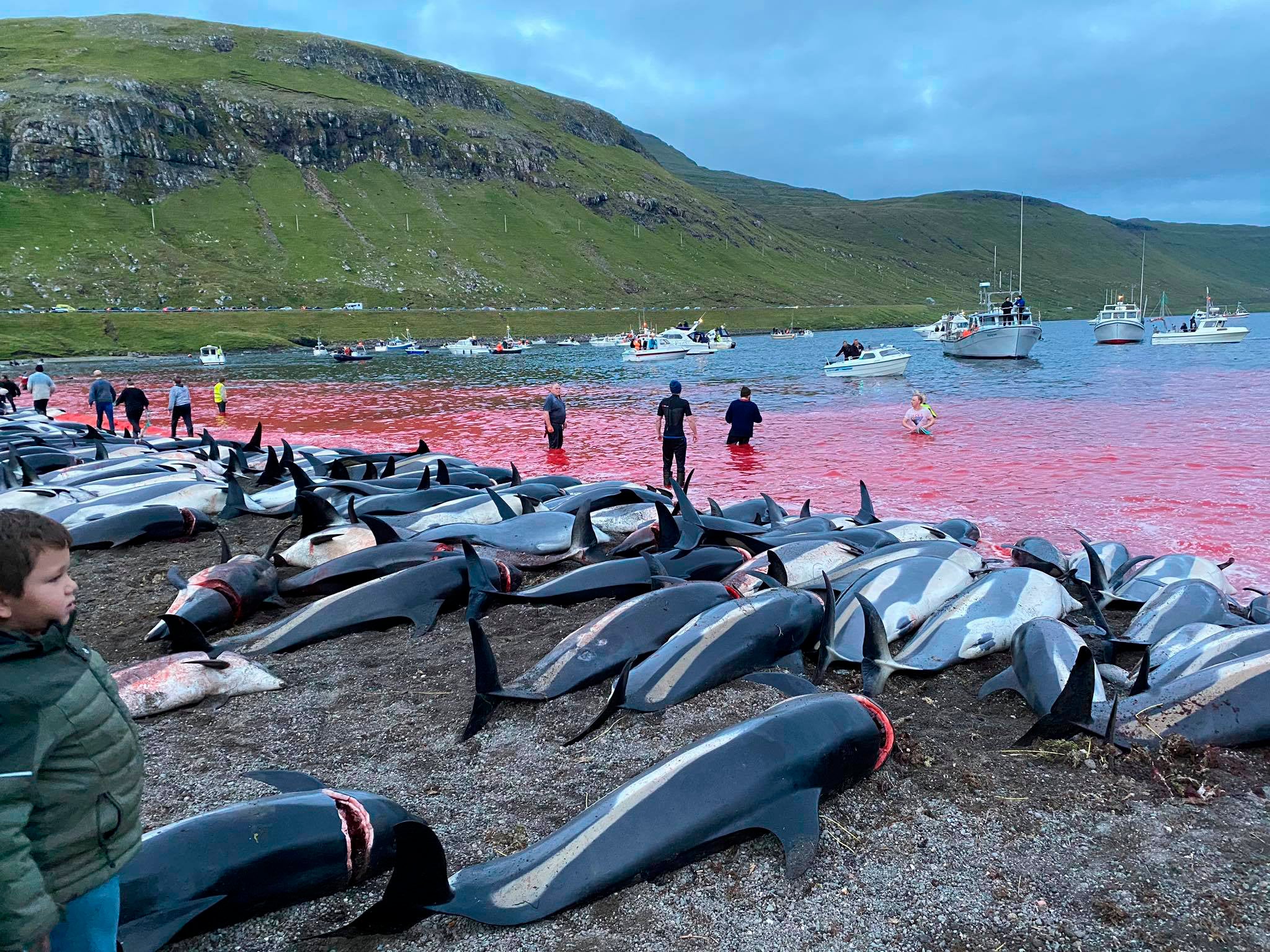Government refuses to halt post-Brexit Faroes trade deal despite whale and dolphin massacres
Exclusive: Department for International Trade defies plea for sanctions after nearly 1,500 mammals killed

Your support helps us to tell the story
From reproductive rights to climate change to Big Tech, The Independent is on the ground when the story is developing. Whether it's investigating the financials of Elon Musk's pro-Trump PAC or producing our latest documentary, 'The A Word', which shines a light on the American women fighting for reproductive rights, we know how important it is to parse out the facts from the messaging.
At such a critical moment in US history, we need reporters on the ground. Your donation allows us to keep sending journalists to speak to both sides of the story.
The Independent is trusted by Americans across the entire political spectrum. And unlike many other quality news outlets, we choose not to lock Americans out of our reporting and analysis with paywalls. We believe quality journalism should be available to everyone, paid for by those who can afford it.
Your support makes all the difference.The government has refused to suspend a free-trade deal with the Faroe Islands over whale and dolphin massacres, in defiance of calls from conservationists.
Hunters caused widespread outrage last week when they wiped out a super-pod of 1,428 dolphins – thought to be the worst bloodbath of the mammals in the islands’ history.
Just 10 days later, they responded to the global revulsion by slaughtering 53 pilot whales only a few miles from the first massacre.
Wildlife campaigner Dominic Dyer has called for ministers to suspend the £580m post-Brexit agreement that the government agreed with the Faroe Islands in 2019 “until the slaughter ends for good”.
More than 21,000 people have signed a petition on the government website backing the plea in three days.
The government told The Independent it is “extremely concerned about the sustainability and welfare implications for the animals involved in these hunts” but that it would not review the trade deal.
Instead, it says it will “continue to engage in a frank and respectful dialogue” with the government of the Faroes.
Zac Goldsmith, the minister for animal welfare, tweeted of the dolphin killings: “This is one of the most sickening spectacles I’ve ever seen. It shames our species.”
Known as the “Grindadrap”, the annual hunt involves herding whales and dolphins on to a beach where they are knifed to death as their blood turns the sea red.
The practice has been branded “barbaric”, “sick” and “sadistic” but those who defend it say it is a tradition that does not risk driving the animals into extinction.
Mr Dyer said: “We are currently granting the Faroe Islands a preferential trade agreement worth over £500m a year – it’s time for sanctions to stop this barbarism.”
The deal accounts for more than 25 per cent of the Faroes’ global trade, he said, with exports from the islands – mostly fish sold in British supermarkets – worth £582m a year.
UK exports to the islands amount to £34m, said Mr Dyer, whose petition reads: “If the UK is to be considered a world leader in the protection of marine mammals, it must use this leverage now.”
When asked by The Independent whether it would agree to suspend or review the deal, the Department for International Trade said it had no plans to do so.
A spokesperson for the Department for Environment, Food & Rural Affairs (Defra) said: “The UK is strongly opposed to the hunting of any cetaceans and continues to call on all whaling nations, including the Faroe Islands, at every appropriate opportunity to cease their whaling activities in favour of well-managed, responsible tourism, such as whale-watching.
“We recognise there is a long tradition in the Faroe Islands of killing pilot whales and dolphins for meat and other products, and we wish to continue our frank conversations relating to cetacean conservation, to encourage them to stop these hunts.”
Government policy is to “maintain diplomatic pressure” on the islands to end the hunts and re-engage with the International Whaling Commission.
Boris Johnson’s wife, Carrie, and his father, Stanley, have previously joined campaigns against whaling outside the Japanese embassy in London.


Join our commenting forum
Join thought-provoking conversations, follow other Independent readers and see their replies
Comments